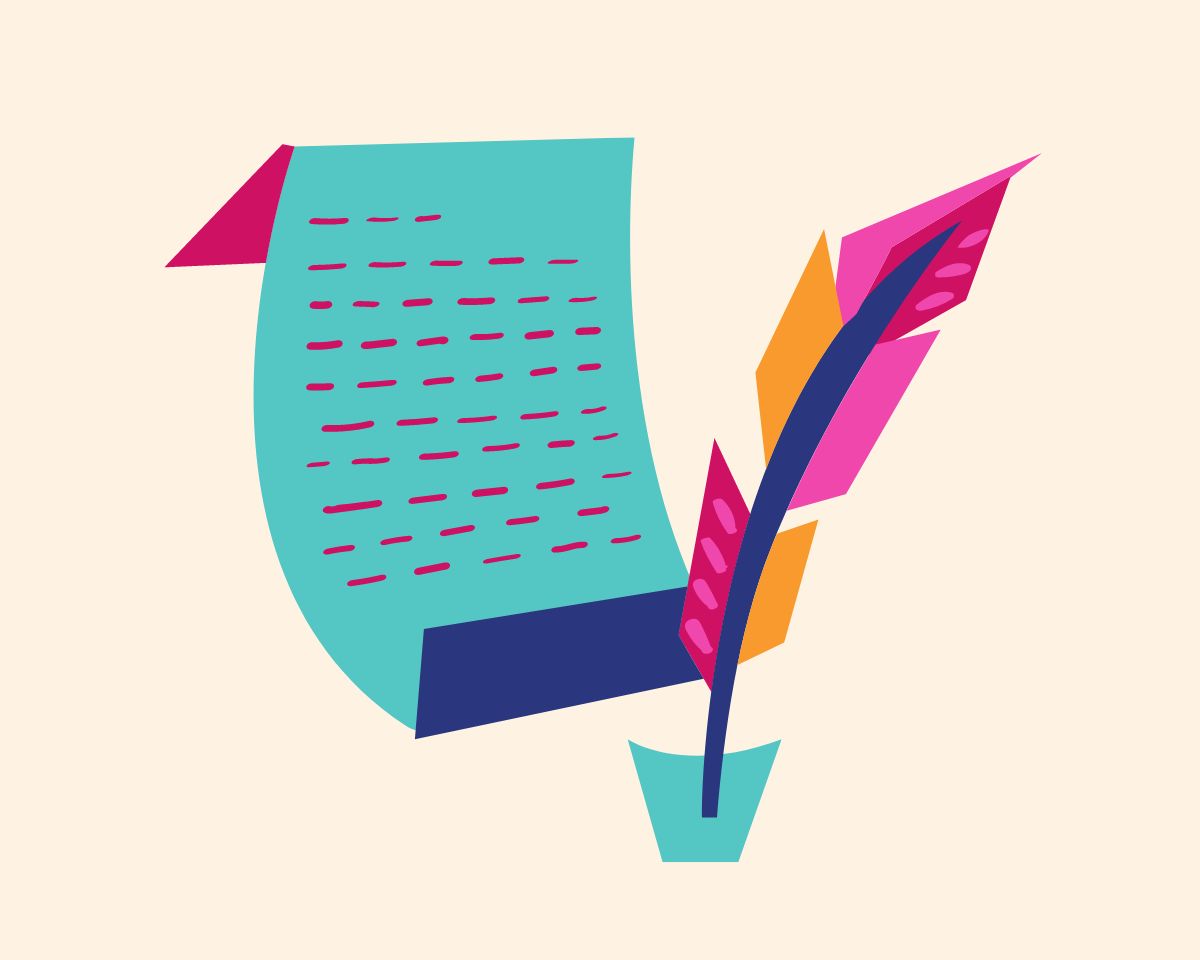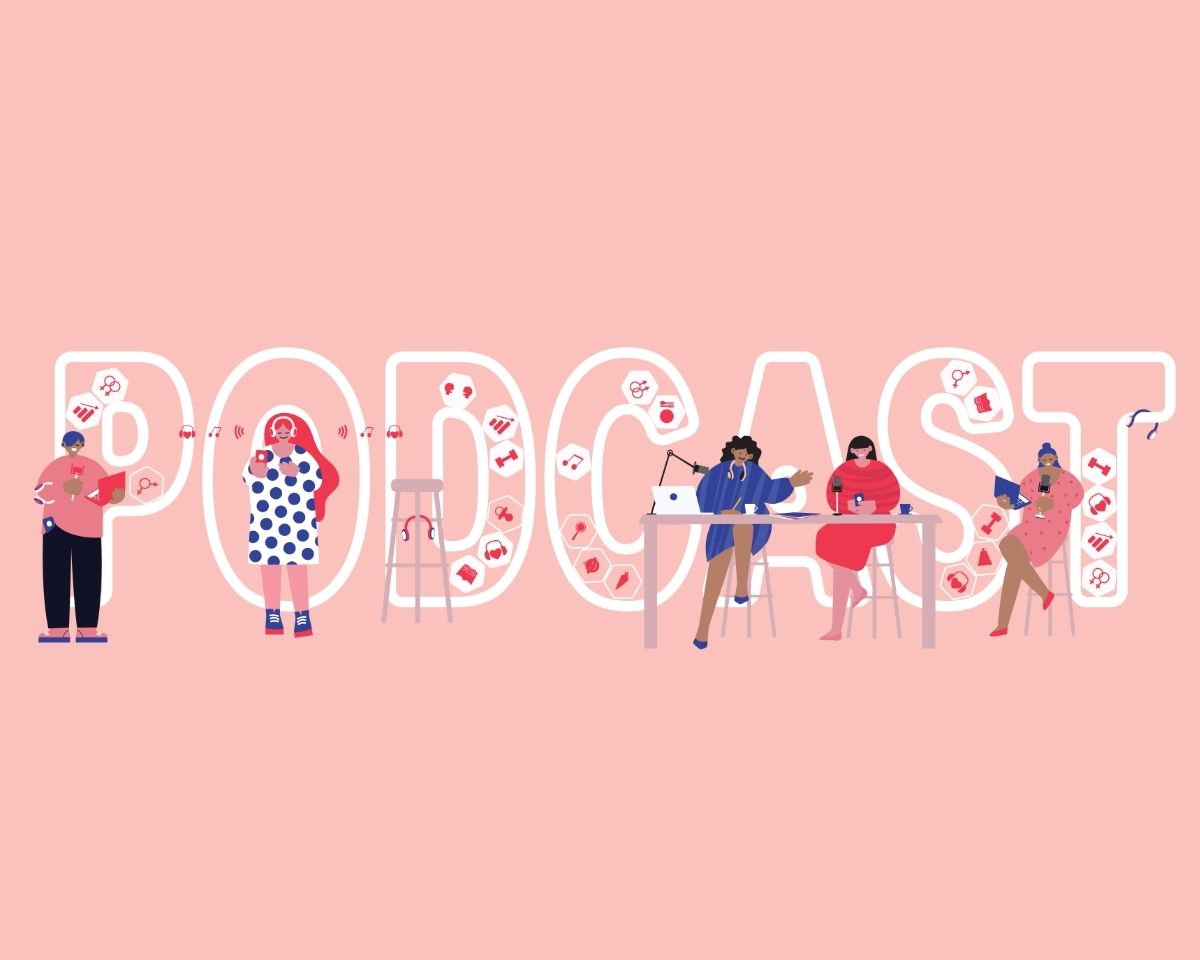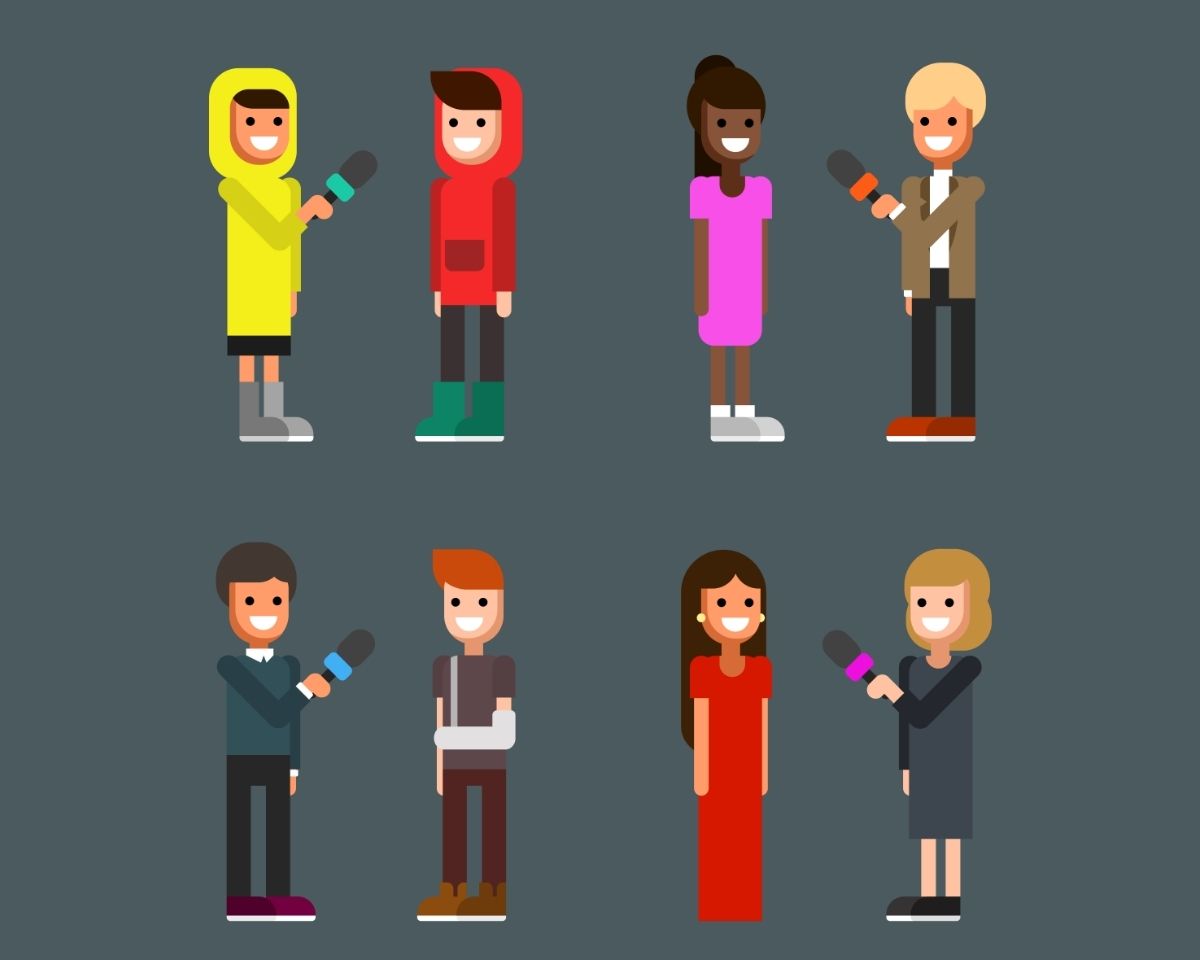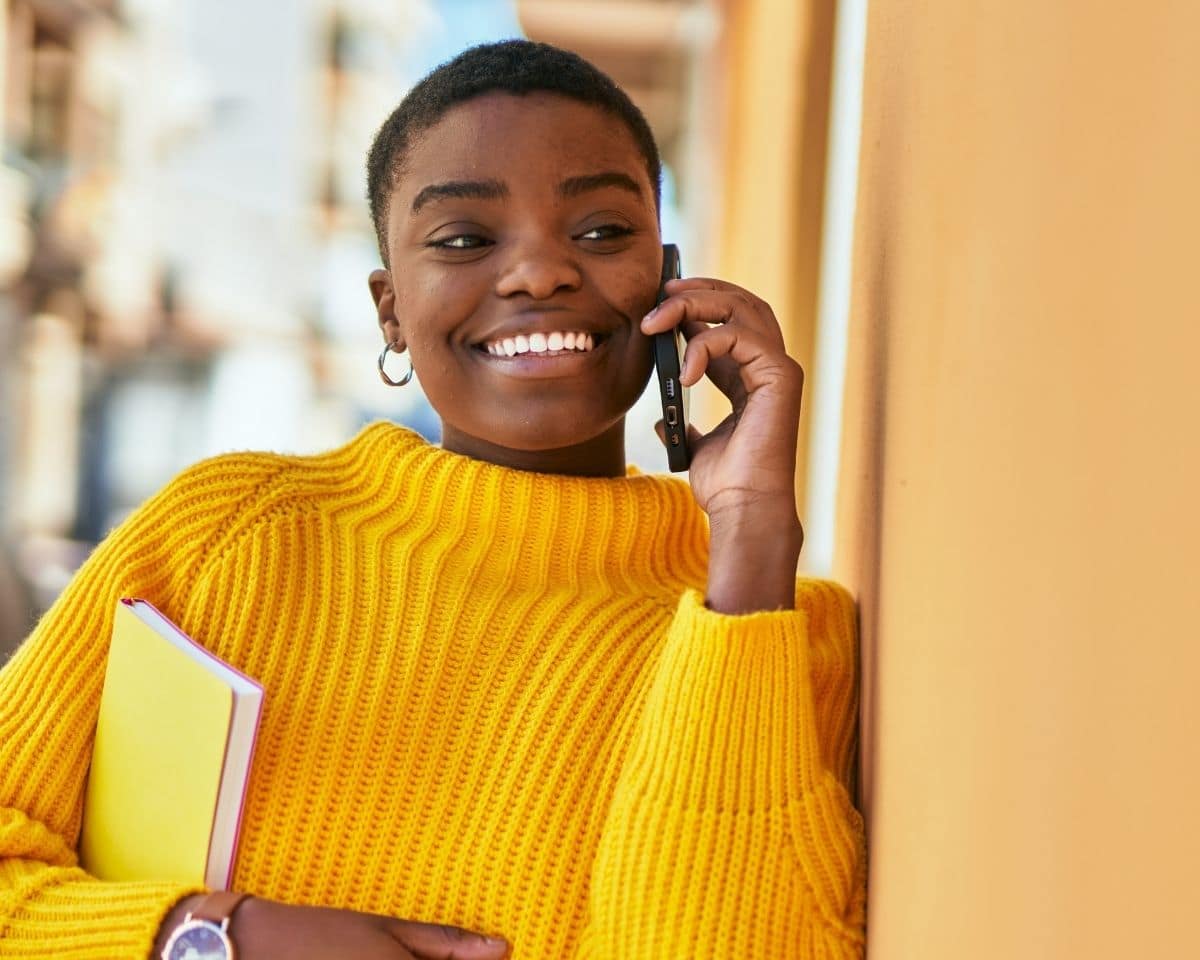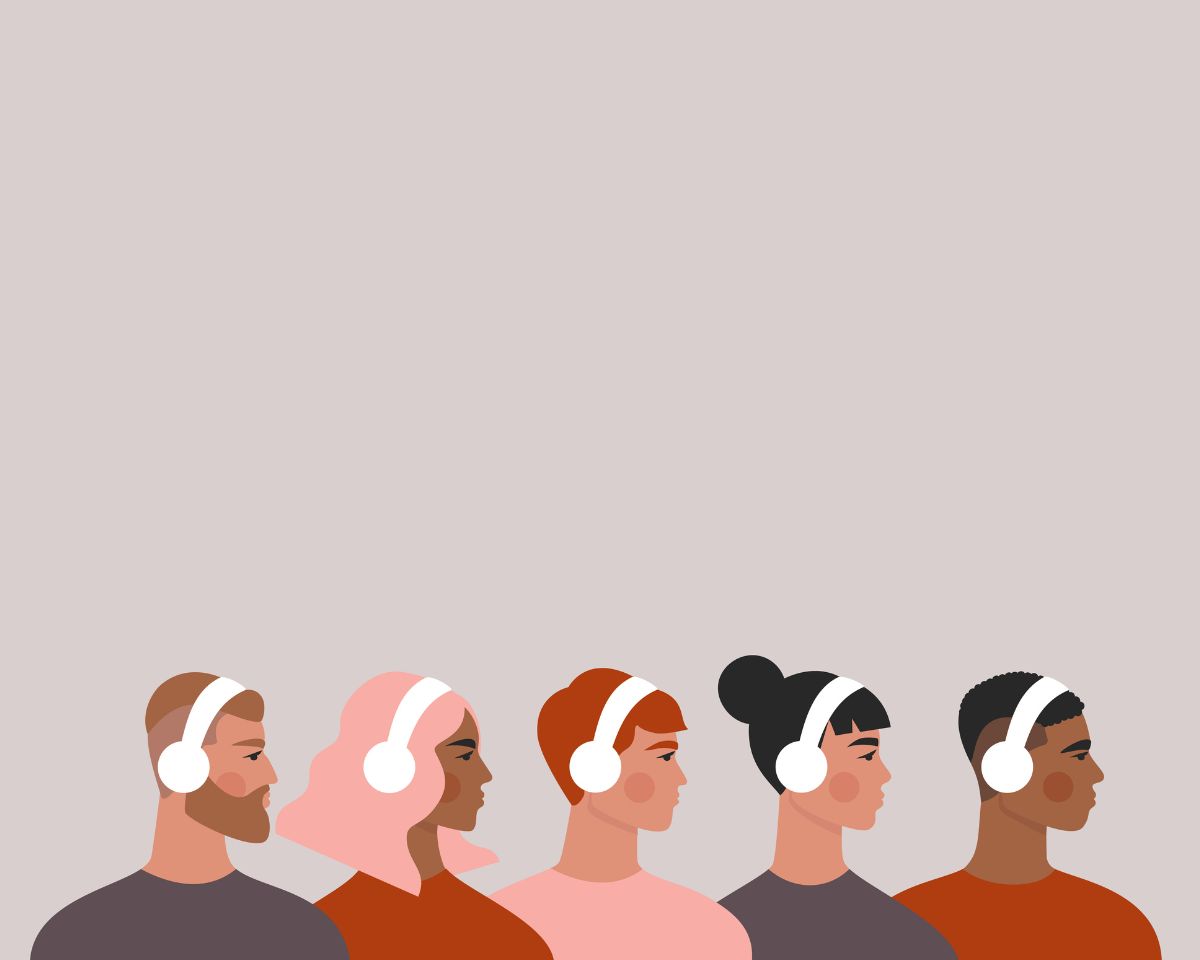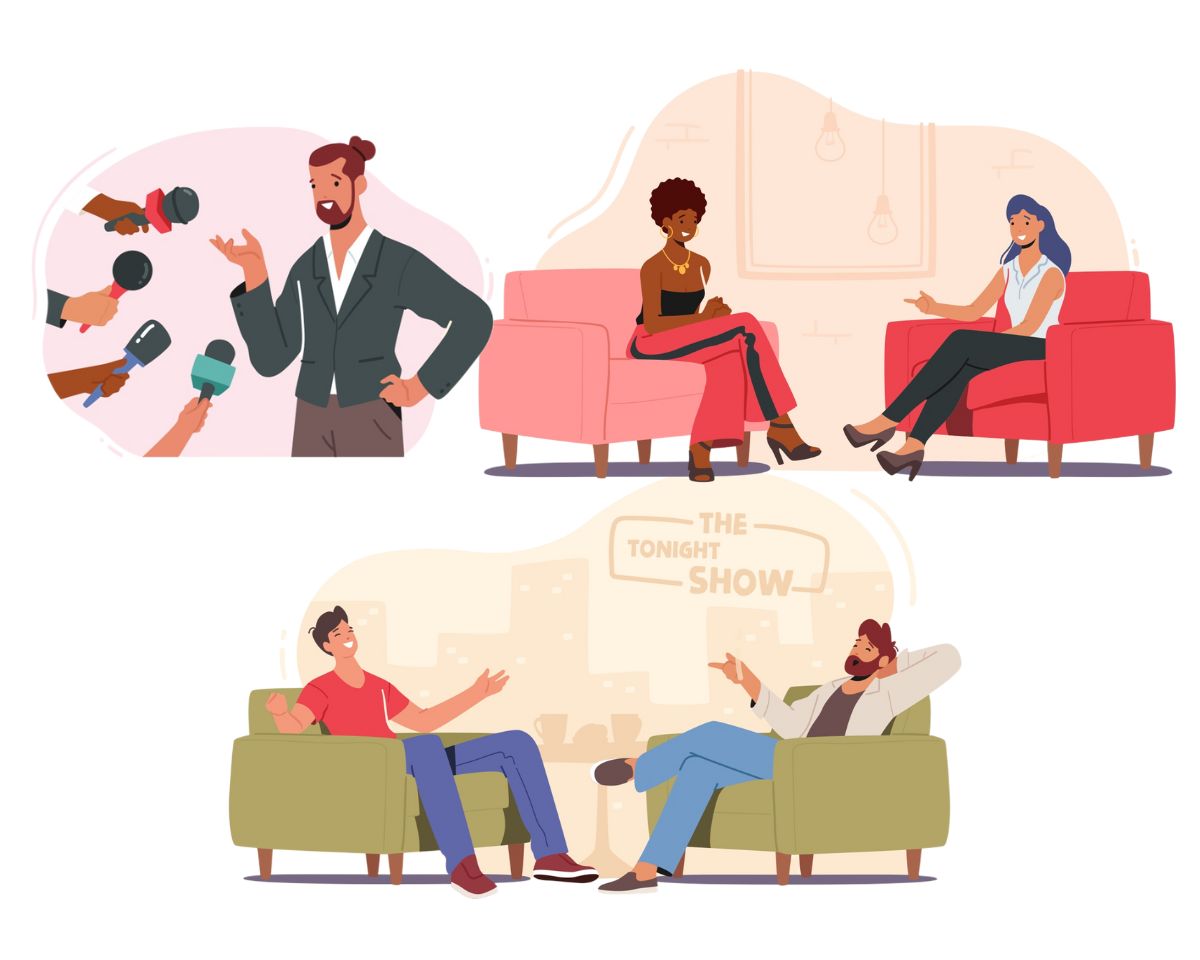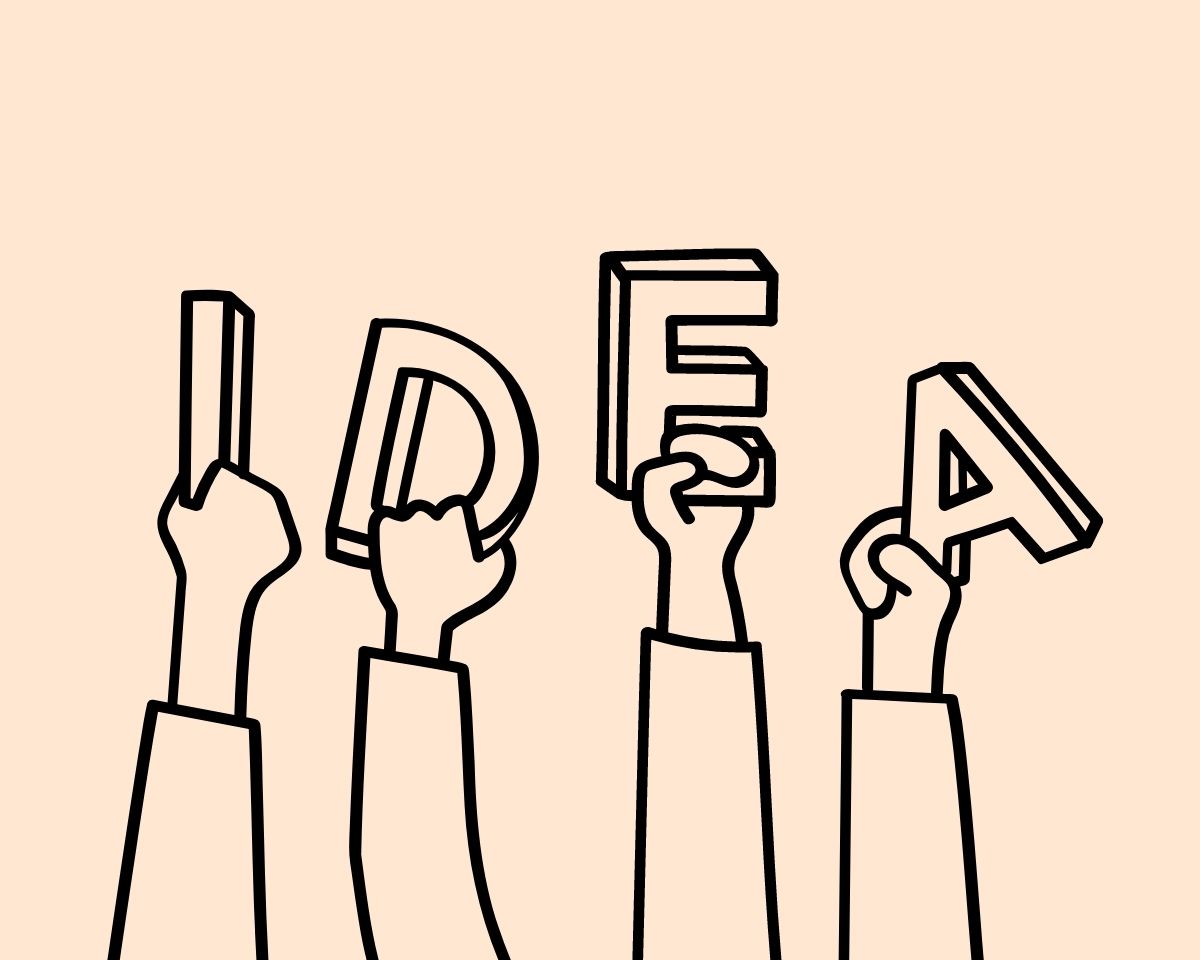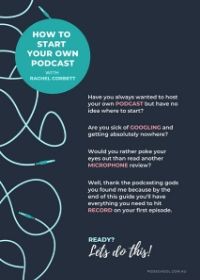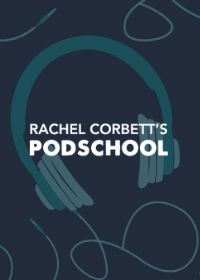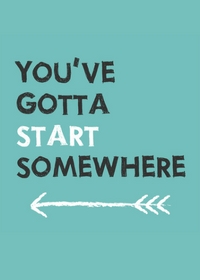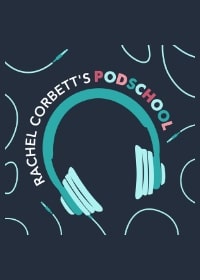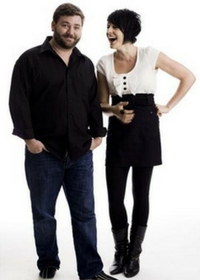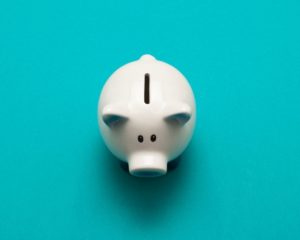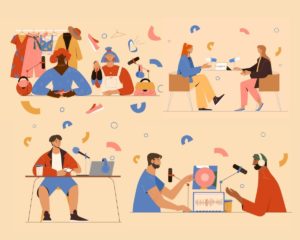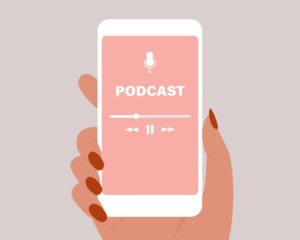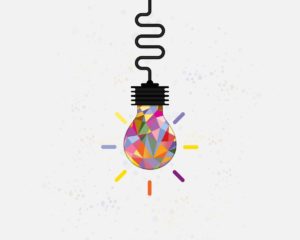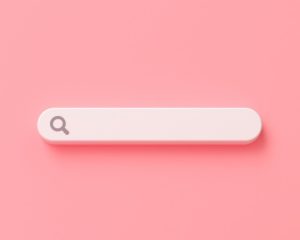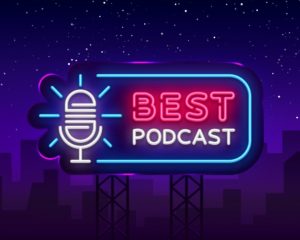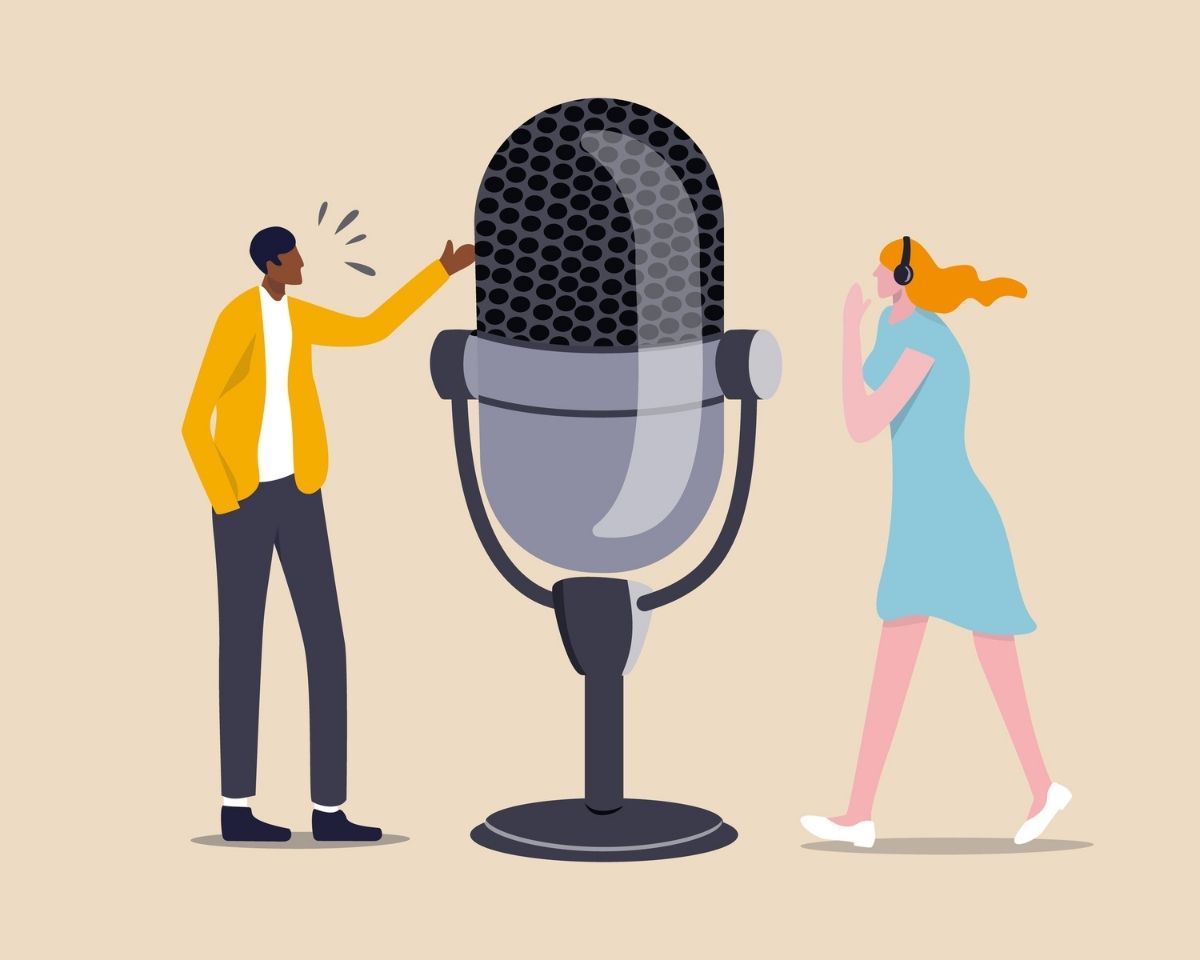
Want to interview like a pro?
When you’re interviewing people for your podcast there’s a lot that can go wrong.
So how do you make sure your guests leave thinking “I’m so glad I did that!” rather than “I never want to see that person again!”?
Podcast interviewing tips
Don’t overwrite your questions
To conduct a great interview you have to be present in the moment.
You also need to maintain as much eye contact as possible because that’s how your guests will know you’re interested in what they have to say.
If you’ve written your questions out word for word it’ll be almost impossible to do this because you’ll spend most of your time looking down at the page rather than up at the person sitting across from you.
When I go into a podcast interview I have a bullet point list of questions with as few words as possible on the page.
To get to this point I’ll have gone through a few steps…
- First I’ll write the questions out in full as I’m doing my research
- Next, I’ll go through and reduce them to a few words or a really short sentence
- Then I’ll go through one last time and bold a keyword for each question
- Finally, I put the whole document in gigantic font.
The reason I do this is so I can look down quickly at my notes and immediately find the word that triggers my next question without getting lost.
Then I can get a sense of where I’m going without having to lose eye contact for too long.
Don’t get attached to your questions
One of the great things about being prepared is you can throw your plan out the window if something more exciting happens.
If your guest says something unexpected you want to be able to follow them down that conversational rabbit hole because those are the moments where you’ll discover something really interesting and unique.
Having a plan means you can afford to get lost wandering down tangents because you know you can always come back to the security blanket of the questions you’ve prepared.
Listen to your guest
Listening is essential if you want to have a great podcast interview because the best questions often come from your guest’s answers.
As an interviewer, you’re the proxy for your audience so you want to make sure you’re doing your best to ask the questions they want answers to.
If you’re too focused on the page you might miss something important and leave your listener thinking “Why didn’t they pick up on that and ask them something about it?”
So make sure you’re paying attention!
Don’t be nervous
That’s easier said than done, especially if you’re interviewing someone you admire.
But nothing makes a guest more uncomfortable than sitting across from someone who’s either terrified or staring at them like they’re in love.
Your guest has to feel like they’re in the hands of a professional. And that means having the confidence to sit across from them as an equal who has everything under control.
You can still have respect and reverence for their achievements but on your show, you’re leading the way and you need to look like a safe pair of hands.
That means staying outwardly calm even though you might be inwardly crapping yourself.
Conduct a pre-interview
This is where you chat to your guest before the actual podcast interview to get a sense of the areas you want to focus on.
You could do this over the phone, via email (although this is a little harder) or via a brief questionnaire if each interview covers similar ground.
Conducting a pre-interview won’t be possible with everyone but it’s often most useful for guests who don’t have a huge amount of information available online.
Since you can’t be well-researched with guests like this a pre-interview can help you find the most interesting areas to focus on so you don’t waste time working that out in the actual interview.
It’s also a nice way to build rapport so the first time you have a conversation isn’t when you’re both sitting in front of a microphone.
Wear headphones
This is important for both you and your podcast guest because you need to be across the sound of what’s being recorded.
Microphones pick up way more than your ears do so listening live will mean you’ll notice sounds in the background that might be a problem in the edit later.
Wearing headphones will also help your guest because they’ll be able to tell if they’re on or off-mic.
Then they can adjust themselves rather than having to be interrupted every five seconds by you saying “Could you just come closer to the microphone?”
Be prepared
Being well-researched is one of the best ways to set yourself up for success in your podcast interview and here’s why…
It’ll put your guest at ease
Nothing gets a guest off-side like sitting across from an interviewer who’s clearly done zero preparation.
‘Winging it’ might sound cool but it’ll make your interview subject feel like you don’t have respect for their time or their experience.
You’re never going to get great content from someone who feels like you couldn’t even be bothered Googling them.
It’ll help you ask better questions
If you know your guest’s story you’ll be able to confidently steer the conversation to the most interesting moments because you know where you want to go.
You can also cover some of the detail in your questions which will help you move through things in a more succinct way rather than making your guest do all the work.
It’ll give you more confidence
If you’re sitting across from someone thinking “I know my sh*t and I could interview you for five hours if I wanted to” you’ll feel much more relaxed and in control.
Proper prep gives you the power to be comfortable, confident, and in the moment and that’s the sign of a great interviewer.
It’ll improve the experience for your audience
People often say to me “I don’t want to go into a podcast interview with a plan, I just want to feel where the conversation goes.”
That’s great if you’re in the pub with mates but not when you’re hosting a podcast.
If you’re presenting a show you need to know where the conversation is heading.
At the end of the day, you’re doing the show for your audience.
Having a well-thought-out plan will mean a better end product for them and a better experience for the person who’s given up their time to be interviewed.
Got a burning podcasting question you’d like answered? Send me an email.
Want to start your own podcast but need a little help? Download my “How To Start A Podcast” guide or sign up for my online podcasting course, PodSchool.
Hello and welcome to the show. Today I'm going to be talking about interviewing. This is something that can go real wrong real quick if you do not do it correctly. As somebody who has conducted thousands of interviews over the years I've had some that were spectacular, some that were not so great, and I'm taking all of the little bits and bobs that I have learned from all of those experiences and distilling them down into a few solid tips, that should hopefully make sure that when you and your subject leave the interview you're both thinking "That was awesome! I'm so glad I did that" and not "I never wanna see that human being again." Sometimes it's a fine line between those two options. Here are some things that you can think about that will help you make it a positive experience not only for you and your guest but also for your audience. One of the most important things is that you must be over-prepared. I would suggest it is always better to be overprepared and have a whole bunch of things rather than be running out of questions. There are a number of reasons why being prepared is really important. The first is that you have to be in control not only for your audience but also for your guest. Your audience needs to know where this chat is going. There needs to be a beginning, middle, and end.
I know a lot of people say to me from time to time, "I just want to sit down and feel where the vibe goes, see where we meander." But the problem is that nobody tunes in to a podcast to listen to your meandering conversation. That would be fantastic over a coffee or a few hours spent together in the pub but not great for a show. That is the difference between something being a show and something being a pub conversation and you want to make sure that this is a sparkly, produced, professional show and that means being in control and knowing where you're going and to do that you have to have a plan. The other reason (apart from making sure your audience feels like they're in safe hands) is that your guest needs to feel like they're in safe hands as well. There is nothing worse than sitting across from someone in an interview and them having zero idea where it's going. If you sit across from someone and you have dedicated your time and your resources and your knowledge to their show and they basically haven't done any research about you, they don't know that much, they're just going to see where the wind takes them. It's a very quick way to get your guest offside because they'll just feel like it's not a professional experience and it's important you make sure they feel that way.
If they sit down and you've clearly done your research they're going to feel much more comfortable and much happier opening up and giving you the content that will make your show better. So putting in that extra effort is so important.
It will also help to boost your confidence. If you are sitting in an interview with somebody and you're thinking "I've got this. I know all about you. I know where we're going. I've got all my research. We could talk for five hours if we wanted to". Then you're going to feel so comfortable and confident leading that conversation. You're also going to be so much more able to be present in the moment and that is so important in an interview. You have to be able to look your guests in the eye, listen to what they say and really concentrate on that so that you can pick up any of those unexpected gems that they drop. As the conversation's rolling through there are things that are going to happen in the moment that you could never have predicted. So you want to make sure that you are there listening intently and the only way to do that is to be prepared.
So make sure that you're prepared and have heaps of questions so you've always got too much content and then you can self edit on the fly. You can work out what you don't really need to dip into or what you've already covered and cross those off as you go. Being prepared will set you up so well in your chat with somebody.
There is a bit of an asterisk to this, however. While being overprepared is great, don't translate that into how you write your questions. For some people I see them go into interviews with a long ream of sentences written out. In the moment when you're talking to somebody if you're genuinely going to be present with them, you don't want a script sitting in front of you because when you're in the moment looking down and seeing 700 words on a page it's going to be pretty daunting. You're not going to know where you are it's easier to lose your place and your questions are going to feel read.
When I go into an interview I always go in with bullet points at an absolute maximum and in those bullet points I've either highlighted with a highlighter or bolded on my word document words that are trigger words so that when I look down all I see is one bold word or one highlighted word and that triggers me to what the question is. And so I can ask that naturally in the moment.
This is where your preparation will come in really handy. If you have prepared then one word will be all you need to know what the question is in your head and to conversationally say it to your guest without reading it off a script. If you need a sentence there to jog your memory that's totally fine. But just don't go in there with thousands of words on a page because you'll never be able to work out where the heck you are and you will have your head so stuck in your script and not in the moment with your guest which is so important if you want to get the best out of them.
The other tip I would say is to cross your questions out as you go so that when you get to the next question when you glance down you'll immediately see where you are in the list of questions. And remember that you are recording something that will be edited later. So if you have to pause or you forget a question or you do get lost it's totally okay in the moment to stop down, say that to your guest and calmly start the question again, or calmly move to the next question. The last thing you want to do is try to fill the silence all the time because it'll give you a nervous energy that will make your guest nervous.
If you have a bit of silence finding your next question it can be cut out in the edit your audience will never even know it happened and you'll be much more relaxed with your guest.
Now even though you have a map with your questions it's important you don't get too stuck to it. If your guest says something and it's amazing and you never thought that they would say it and you didn't plan for it you want to go down that rabbit hole with them. You want to be the proxy for your listener. You are asking the questions they would ask if they were sitting here and if you are stuck to your roadmap so solidly that when they say something amazing you think oh well I've just got to move on to the next question and you gloss over it. Your audience will be screaming at their earbuds thinking "Why didn't you ask about that thing?" and when you actually go back and edit the interview you'll be screaming it yourself to thinking "How could I miss that?"
You have to be in the moment and be able to listen to your guests so that you can go where they want to go if there's something really interesting, and you can always come back to that roadmap later so don't get too wedded to the plan that you have.
One of the most important things to do in an interview? Listen. Sometimes the best questions will come from answers but the only way to catch those moments is to be listening intently.
Another tip? Don't be nervous. This is easier said than done because sometimes you might be sitting across from somebody that you really admire but you need to do whatever is necessary to not feel that way. So feel it underneath but don't make it visual to your guest. Sometimes the best way to do this is to overprepare. If you feel really prepared and confident then you will be much less nervous in the moment. You can still have all of those jitters and all of the starry eyes but it's really important that your guest feels like they're sitting across from somebody who has got this shit down, who is in control, and who is going to lead them along the path and be super confident and super on point and that they don't have to worry about anything. If you are like a nervous schoolgirl, who is sitting across from their crush, that is the most awkward weird awful energy to be on the other side of and it will make your guest feel icky and they will not give you their best. If they feel uncomfortable or like you are going to have a heart attack because you are so excited to be around them you can barely speak, they won't open up. They need to feel like they're sitting across from an equal.
It's also really awkward for your listener to hear the sound of somebody, almost awkwardly flirting with someone they're really attracted to. Nobody wants to hear that. Plus this guest obviously sees value in you because they've agreed to come on your show. Your audience can see the value in you because they've subscribed and it's really important that you see the value in you too. The other thing I'd suggest is to do a pre-interview. I have a full episode about this which you can find at podschoolpodcast.com just type "pre-interview" into the search bar. This is basically a chat before the interview. Essentially it's just so that you can try and find the gems you want to focus on in the interview so that you're not meandering around for 20 minutes trying to find the gold. This will only of course be possible with certain guests because if you get somebody really big and really busy they might not have time to sit down for 15 minutes on the phone with you to do a pre-interview.
But if it is possible it can be really helpful not only to hone your questions and to hone your content but to also make sure that the first time that you talk to them isn't in the actual interview. Any moments you can steal with them before the interview can just help you build a rapport so that when you sit down with them for the interview there's already a relationship there. That can help to get a little bit more out of your interview subjects.
My final piece of advice is to wear headphones. This is so important for both you and your guest or your three guests or whoever is sitting with you. It's important for you because you need to be across everything that's being recorded, you need to be able to hear whether there's an air conditioner that's just buzzing like crazy in the background or if there's wind noise and you need to move to a quieter place. It is much better for you to make those decisions in the moment than for you to listen to the edit for the first time and think "Oh my goodness this audio is unusable." You then would have to ring up somebody and say "Oh gosh do you think we could do that again because I stuffed up?"
With your guest, if they are wearing headphones they are much more likely to be on-microphone. If they have headphones on you can say to them "just make sure that you can hear yourself really clearly." If they can hear themselves, they can self-regulate so that they can have better mic technique.
That's it. There are my tips for getting the best out of your interview subject. If you are going to sit down with somebody in your show hopefully this will help you to get a better result at the end so that each of your interviews not only sounds great for your audience but is a great experience for your guests. If your guest loves the interview they are going to be much more likely to share it to their network.
A big shout out if you have left a review in iTunes for the show. If you haven't already but you are finding these tips useful then please head to iTunes or wherever you listen to the podcast and pop a little rating and say "hi" and tell me your thoughts on the show. If you have a question you would like answered please head to podschoolpodcast.com you can send me an email there. You can also get info on my online podcasting course, PodSchool, which takes you step by step through everything you need to actually be sitting across from somebody and doing an interview with them. Thanks so much for joining me. I will see you next week and until then, happy podcasting.
